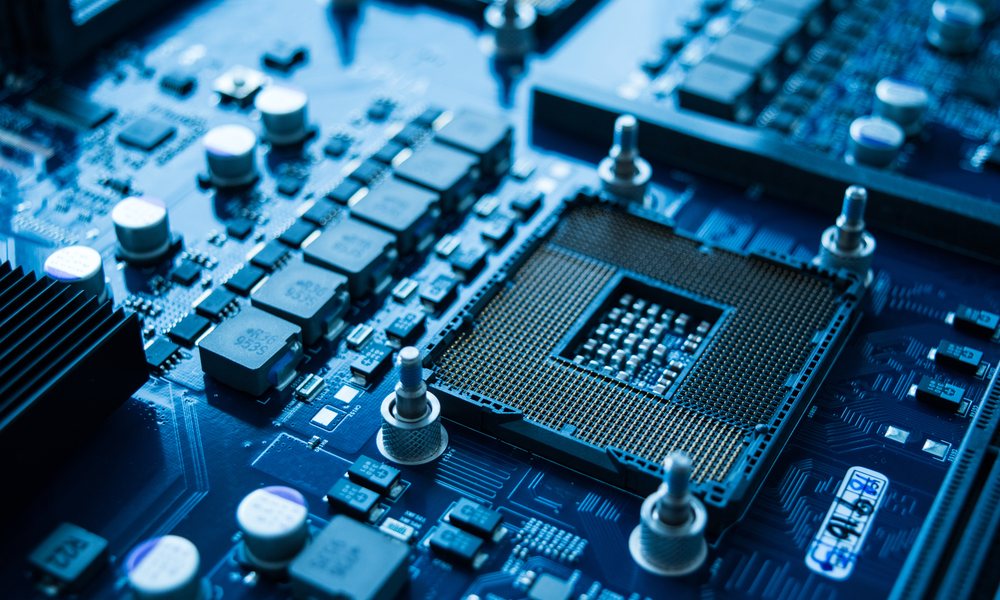Apple Expected to Begin Transition to ARM-Based Macs Next Year
 Credit: aPhoenixPhotographer / ShutterStock
Credit: aPhoenixPhotographer / ShutterStock
Toggle Dark Mode
Apple’s plans to transition its Mac lineup to its own in-house ARM chips as soon as next year appears to be on track, according to industry insiders, although it’s still unclear how smooth the changeover will be.
A new report from Axios yesterday added weight to the rumours that have been circulating since last spring that Apple will be leaving Intel chips behind in future Macs in favour of its own ARM chip. Apple has proven with its mobile device lineup that the company has the resources and expertise needed to design its own chips, and some have wondered for years when the company would apply that expertise to its desktop and laptop computers, especially with Apple’s penchant to own all of the important pieces of its component chain.
While the Axios report doesn’t add any significant new information, it does cite developers and Intel officials as saying that they expect Apple to make the move as soon as next year, also pointing to the recent Bloomberg report on Apple’s plans to unify the iOS and Mac app platforms by 2021.
Further, if the rumours from last spring are true, Apple has already been working on at least one ARM-based MacBook, a refreshed 13-inch model code-named “Star.” While the report suggested that this would be the Retina MacBook Air that ultimately arrived last fall, it doesn’t seem unreasonable that Apple still has an ARM-based prototype in the works, and reports from sources simply confused two models that were simultaneously under development.
What’s more uncertain, however, is whether Apple will make a rapid shift to new ARM-based CPUs through its entire Mac line, or take a more measured approach of releasing a subset of ARM-based models first before phasing out the Intel models entirely. Analysts expect Intel’s powerful i9 SoC to power Apple’s highest-end Macs, and with a new Mac Pro on the horizon some have questioned whether Apple can have its own ARM chip up to speed in time.
What This Means for You
Apple is certainly no slouch when it comes to ARM chip development — the A12 Bionic chip found in its latest iPhones already holds its own against some of the best desktop CPUs available, so it doesn’t seem like a stretch for Apple to easily be able to produce a massively powerful CPU that could power even its behemoth Mac Pro.
In fact, since Apple’s Mac Pro is only expected to be teased at WWDC, and Apple has already gone on record as saying that it’s been working on a “completely redesigned, next-generation Mac Pro” it’s entirely possible that the new Mac Pro may serve as the inauguration for Apple’s new SoC, and a powerful demonstration of the capabilities that Apple can bring to its own chips.
Apple’s plans to move to a “single binary” system for both iOS and Mac apps also suggests that the company could be all-in on ARM-based Macs by 2021, since this would ostensibly require a common architecture between iOS and Mac devices. However, depending upon how Apple implements its “Marzipan” SDK, that may not be strictly the case, since it would theoretically be possible to compile a binary that would run on both Intel and ARM platforms. In fact, unless Apple plans to cut off all previous Intel-based Macs from its new combined App Store, the SDK will need to have some way of addressing this.
Release Date
While Axios suggests that Bloomberg’s timeline may mean that ARM-based Macs won’t appear until 2021, giving Intel more Mac business next year than previously expected, there’s no reason that Apple can’t begin releasing ARM-based Macs sooner.
In fact, this isn’t the first time that Apple has gone through this kind of a transition; the company famously switched to Intel CPUs from the PowerPC platform back in 2006, and also did so ahead of its original schedule at that time. Developers were encouraged to create all new apps based on the new Intel architecture, however Apple also baked the Rosetta dynamic translator into OS X at that time to allow Power PC based apps to continue to run on the newer Intel-based Macs.
[The information provided in this article has NOT been confirmed by Apple and may be speculation. Provided details may not be factual. Take all rumors, tech or otherwise, with a grain of salt.]






